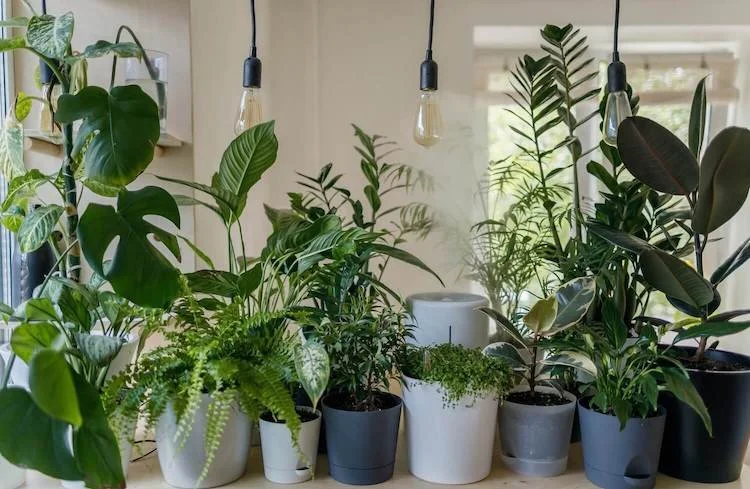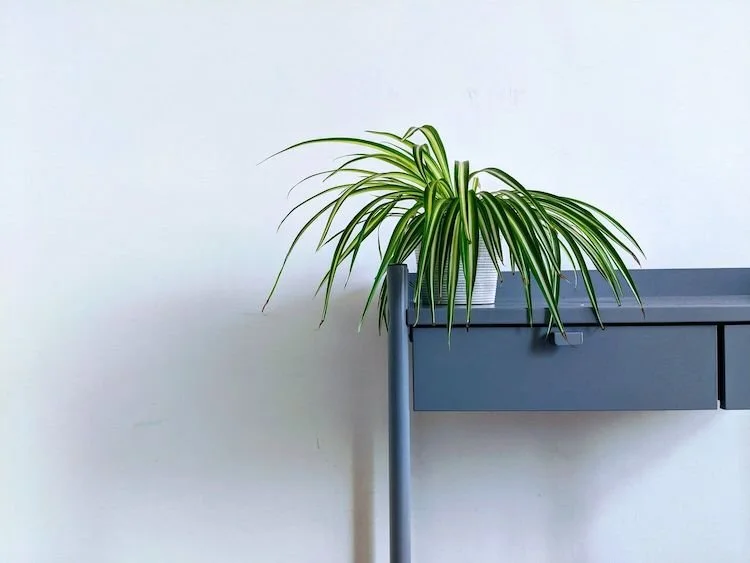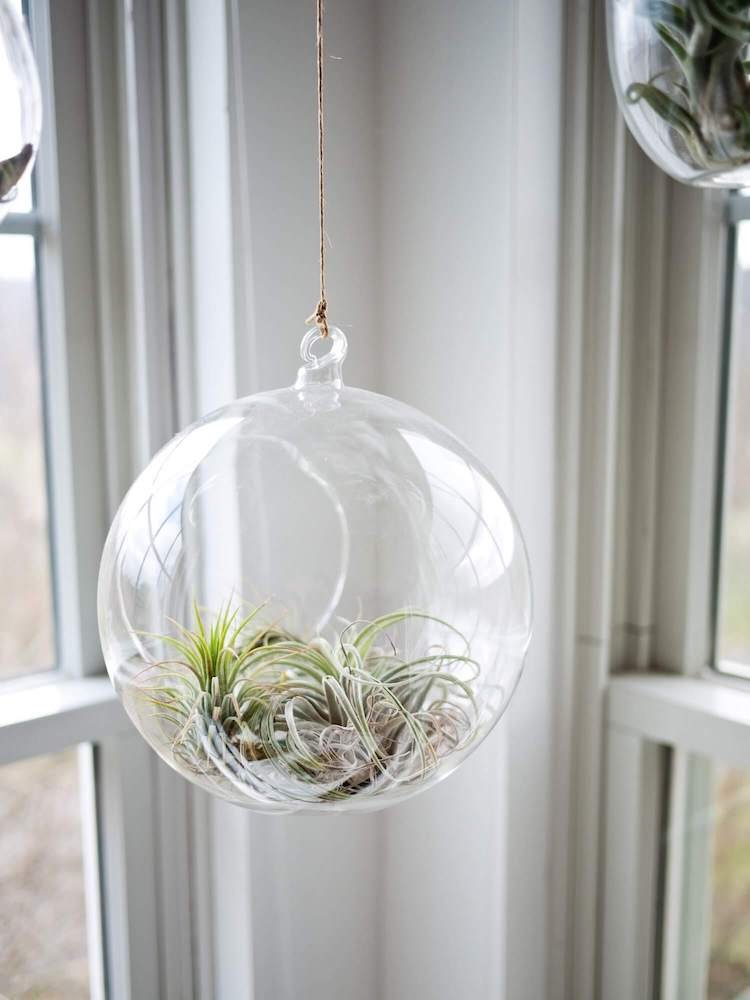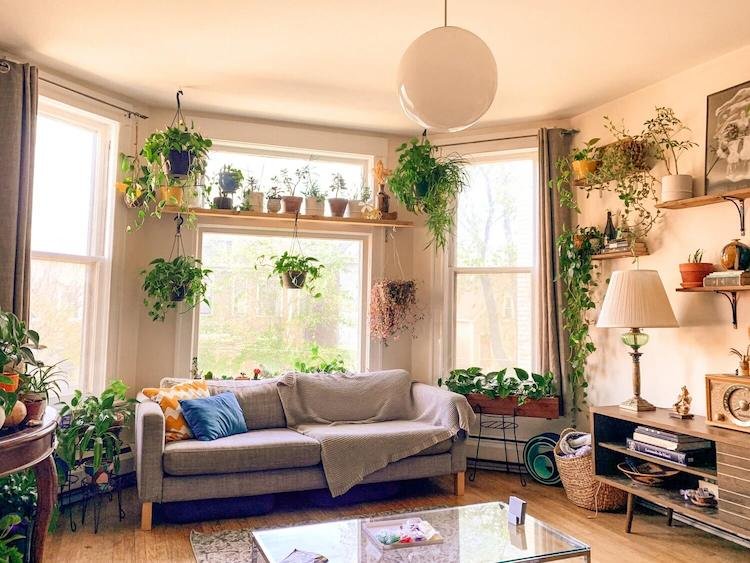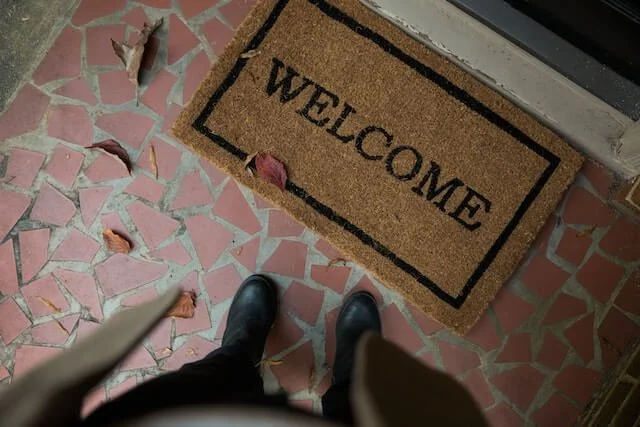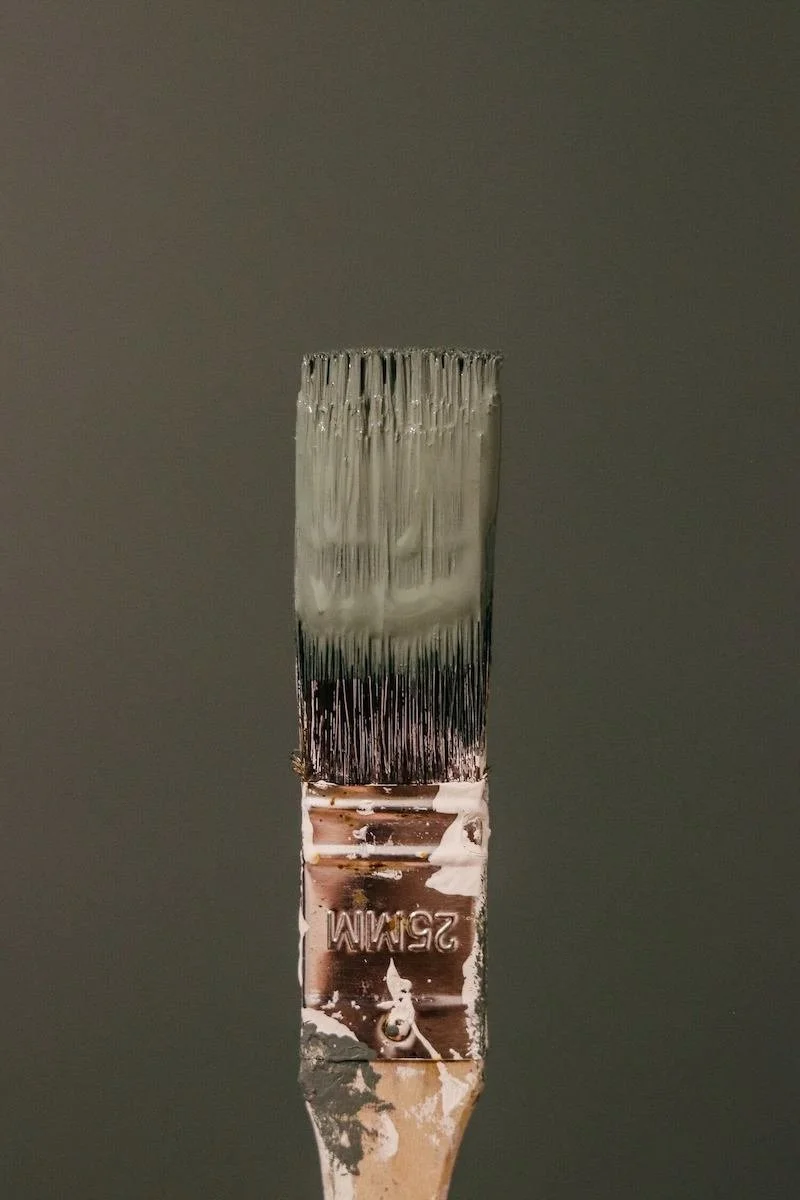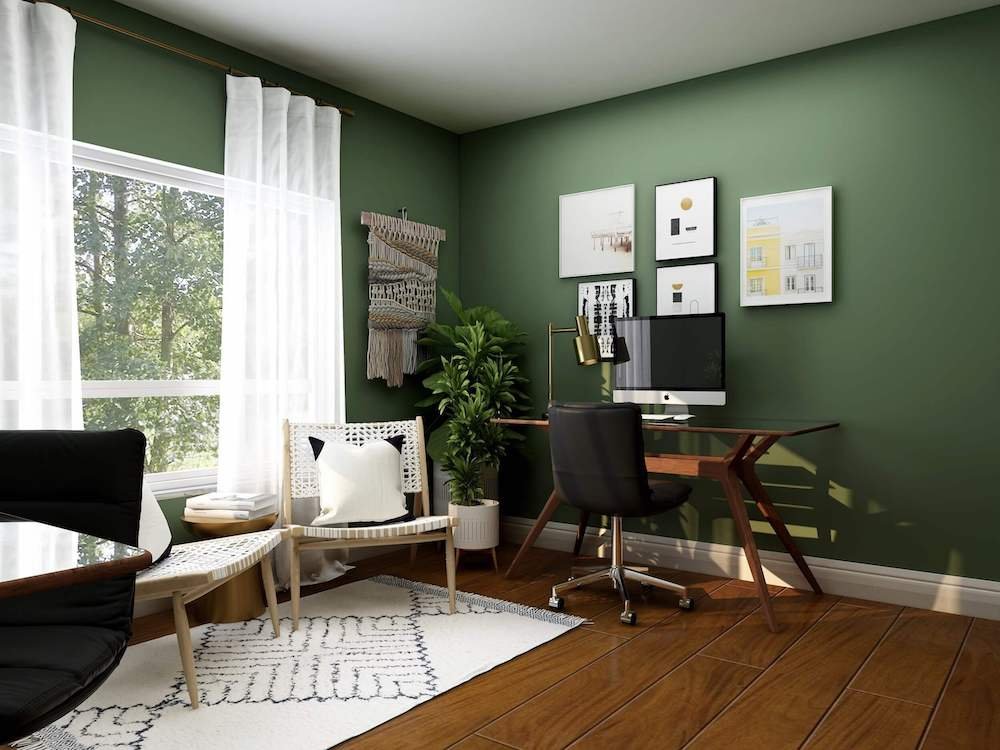The Best Non-Toxic Houseplants for Dogs, Cats, & Kids
House plants are not just an inexpensive way to jazz up your space, they serve a practical purpose and can enhance your life. Studies show their mere presence can improve concentration and productivity, reduce stress levels and boost your mood.
House plants also act as air purifiers and are able to eliminate toxins while releasing oxygen and absorbing carbon dioxide at the same time.
This post does contain some affiliate links which means The Honest Consumer may receive a commission if you decided to purchase. Our commission is at no additional expense to you!
However, it’s not just us adults that like the look of plants, curious kids and pets also find them appealing.
Unfortunately, not all houseplants are safe – some contain toxic compounds such as solanine, oxalates, and cardiac glycosides which can be harmful if ingested by pets or children.
Side effects can range from slight nausea to serious symptoms such as vomiting, breathing problems, skin irritation, seizures, abdominal pains and even death.
This is why it's so important to do research before bringing new plants into your home. Here are some house plants that are pet and kid friendly plants.
The 10 Best Non-toxic Houseplants
It’s almost impossible to find a complete list of toxic house plants. We've made this one as a start, but it's always good to do your own research and check reliable sources like the ASPCA and National Poison Control before you bring a new plant home to ensure it’s safe for your kids or pets.
Pin this list of non-toxic house plants for clean air!
Here’s a list of non-toxic plants that are safe for little hands and paws and sure to be a great addition to your indoor space. Please beware when choosing plants and make the best choice for your household through doing further research.
Boston Fern
Boston Ferns are the perfect choice if you wish to bring some eye-catching greenery indoors. These plants are not only aesthetically pleasing with their green leaves, but they also help to remove harmful air pollutants from the air and improve humidity levels.
Boston Fern
It's reported that Boston Ferns do best in a cool place with high humidity and indirect sunlight. Most importantly, Boston ferns are completely safe for your children and furry friends and you won’t have to worry about their safety in case you leave the room. They also look great in hanging baskets.
Moth Orchid
Despite their delicate appearance, Moth Orchids are surprisingly easy to care for. It's reported that these beautiful flowers do well in low light and allowing the soil to slightly dry out between waterings.
Their stunning blooms last for months and come in a variety of colors including pink, mauve, yellow and white. Moth orchids coexist perfectly well with humans and pets so you can marvel at their beauty risk-free.
Spider Plant
Christmas Cactus
This one is great for beginners. Unlike desert-loving cacti, the Christmas cactus is a spineless tropical rainforest native that loves regular waterings. This plant does best with moderate light such as placed near a window and misted frequently.
Pop one in your bedroom and you’ll enjoy restful nights as the plant purifies the air and releases oxygen as you sleep. Fortunately, no part of the Christmas Cactus is not toxic to the curious dog or cat.
Spider Plants
The spider plant is believed to bring luck and good health in eastern cultures. This was confirmed by a NASA study which showed the plant’s effectiveness in removing carbon monoxide, formaldehyde, Xylene, and toluene.
It's reported that this green plant does well in well-drained soil and bright light that is indirect. You’ll be happy to learn that spider plants are kid-friendly and pet safe. These also look great in a hanging basket.
Prayer Plant
Prayer Plant
If you’re looking for a hardy plant, then prayer plants are a fantastic option. These plants are seen as a symbol of gratitude thanks to the folding of their leaves at night which resembles praying hands.
This plant does best in bright, indirect sunlight and high humidity. There are several colorful varieties for you to choose from including Red, Marisela, Kim, Green, and Black. The Prayer plant is non-toxic - it won't harm your kids or furry animals.
Parlor palm
The parlor palm is another delightful houseplant that can instantly add a tropical vibe to your home. Tall and elegant, the plants thrive in spaces with east- or north-facing windows but don’t require much light.
They also don't need watering often - just make sure that the soil is dried out in between watering. Parlor Palm is not poisonous to pets and children, making it a wonderful houseplant.
Airplants
Ponytail palm
Ponytail palms have many stellar qualities - aside from being low maintenance, they’re adept at taking in toxins from the air like xylene, toluene and benzene, filtering them out, and releasing clean oxygen.
They are also very easy to grow as long as you don't overwater them. Luckily, the ponytail palm is completely safe for children, cats and dogs.
Airplant
These adorable air plants are a great choice if you're looking for something low maintenance. This small plant doesn't even require soil!
These plants do well in indirect light such as in a window and can be placed down in a bowl of water to keep hydrated. Thankfully these safe plants are not harmful to humans or animals.
African violet
The African violet is a huge fan favorite because of its peppy flowers, which come in white, blue, or purple. With proper care, an African violet houseplant can bloom year-round, making it a wonderful pick-me-up for the winter blues.
Although the houseplants tend to be slightly finicky, they can thrive in the right conditions. As a general rule, it’s not a good idea for your child and pet to chow down on it, but if it happens accidentally, there’ll be no need to panic because African violets are non-toxic.
Popular Houseplants House Plants That ARE Toxic to Kids & Pets
When selecting your house plants it's important to select plants that are safe for everyone in your household. While the list above provided non-toxic plants, we also wanted to provide a list of popular plants that you should think twice about having in your home. Here are some common houseplants that you should avoid if you have children and pets.
Snake Plant
Peace Lilies: Native to tropical rainforests, Peace Lilies are unfussy plants that are stunning and easy to care for. The presence of calcium oxalates crystals in the leaves and stems makes the plant mildly poisonous to children and pets and can result in intense burning of the mouth, vomiting, excessive drooling and breathing difficulties.
Dracena: Dracenas are a go-to for plant lovers who like the look of lush greenery with minimal maintenance. While they’re safe for humans, the glossy leaves can induce drooling, vomiting, weakness and dilated pupils if chewed or bitten by cats and dogs.
Devil’s Ivy: With beautiful trailing plant is leaves, Devil’s Ivy is a staple in many homes. What makes Devil's Ivy poisonous are the insoluble calcium oxalate crystals found in the stem and the leaves which cause rashes, vomiting or diarrhea in animals and humans.
Snake Plant: One of the toughest houseplants, snake plants can tolerate most indoor conditions but the leaves are also harmful if consumed. Large doses can cause nausea, vomiting and swelling of the tongue and throat.
Sago Palm: Sago Palms are a majestic option for a house but if you’re a parent or pet owner you should give them a second thought. The entirety of this plant is poisonous to both animals and humans and can cause vomiting, liver damage, and even death.
Pothos: There are few climbing houseplants that are as great-looking and easy to grow as pothos. However, there is a major downside when it comes to safety– the leaves and stems contain calcium oxalate crystals which cause symptoms such as vomiting, foaming at the mouth and diarrhea if eaten.
ZZ plant: The boasting glossy leaves and drought-resistant nature of the ZZ plant is enough to make you want to your plant collection. However, all parts of the ZZ plant are poisonous from seeds, foliage, stems, roots, and sap. Because of this, ingestion or even contact with any part of the plant could cause serious discomfort.
Aloe Vera: Aloe Vera has beautiful fleshy leaves that have therapeutic properties for skin and hair. However, aloes also contain anthraquinone glycosides, which are laxatives that can cause lethargy, vomiting, and diarrhea if ingested by cats and dogs.
Monstera Deliosa: Given the popularity, you may be surprised to learn that the tropical beauty is actually toxic to children and pets. Like many poisonous plants, Monstera contains calcium oxalate crystals that can cause immediate burning pain and swelling of the lips, mouth, tongue and throat.
Rubber tree: The rubber tree is a showy plant that’s ideal for people with a black thumb, but not so much for people with children and pets. Rubber trees are considered mildly toxic and ingesting the stems and leaves could cause gastrointestinal upset, vomiting, drooling and a loss of appetite.
Aloe Vera
Tips for Picking Out House Plants
Along with the safety of everyone in your house there are a few more things to consider when selecting greenery for your home.
Consider how much care the plant will need and if you are up for the task. If you are not home regularly or travel a lot consider a low-maintenance houseplant.
Do you have any young children or fur babies that will touch, eat, or be harmed by the plant?
How much light does your home get and is it fitting for that plant? If you lack lighting considering choosing a plant that requires low light. Are there particularly sunny spots in your living space that would make a good place for plants that require more light?
Does the plant do better with indirect light or direct light?
Do you have a green thumb or any experience with plants? If not consider doing your research on particular plants to make sure you're able to keep your plant friends alive.
Hopefully our guide helped pet owners and parents discover some indoor plants that are a good choice to spruce up their homes and cleanse the indoor air.
For more tips & tricks on sustainable living be sure to follow The Honest Consumer on social media, subscribe to our newsletter, & check out the Ethical & Sustainable Brand Directory.

